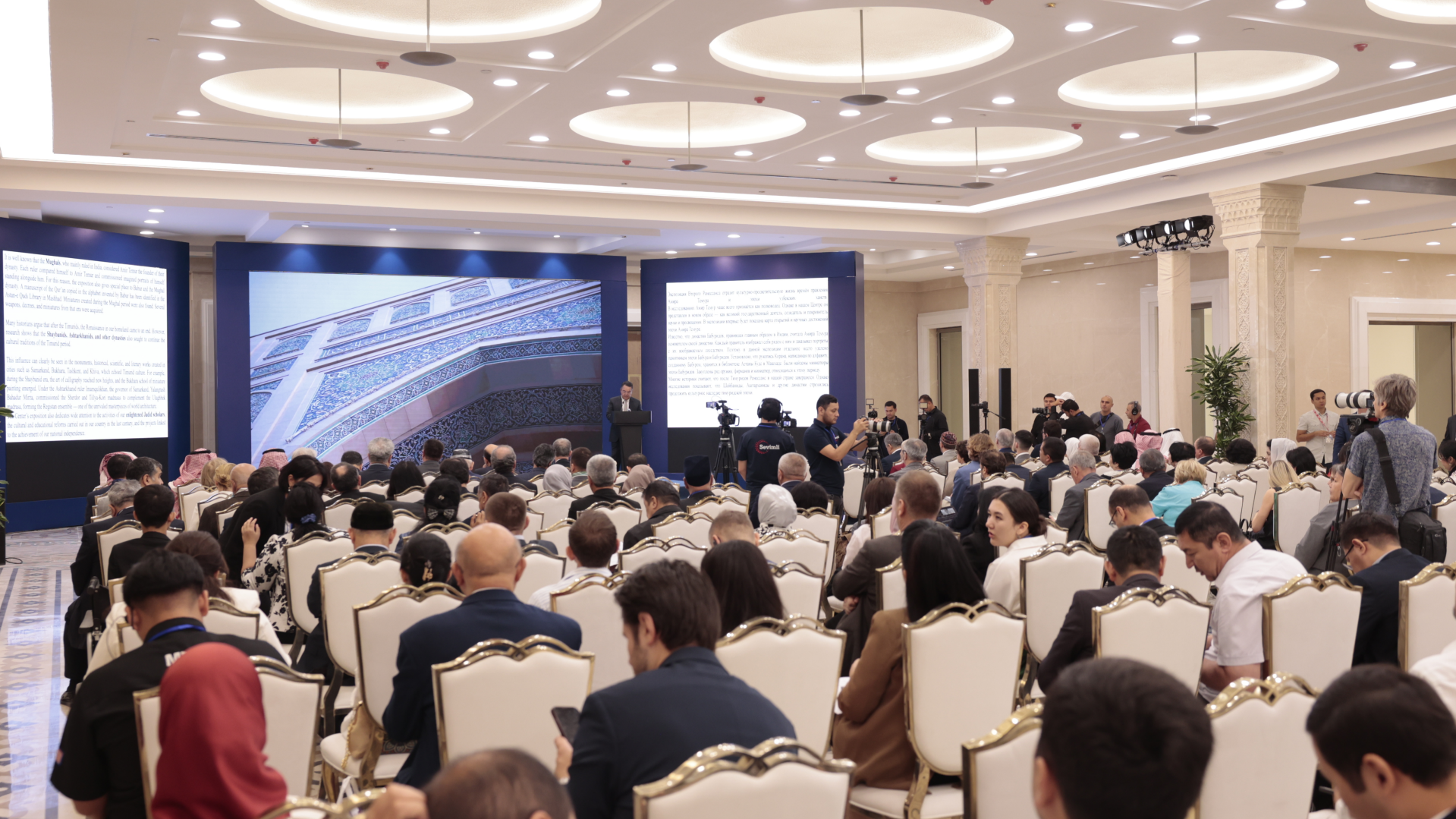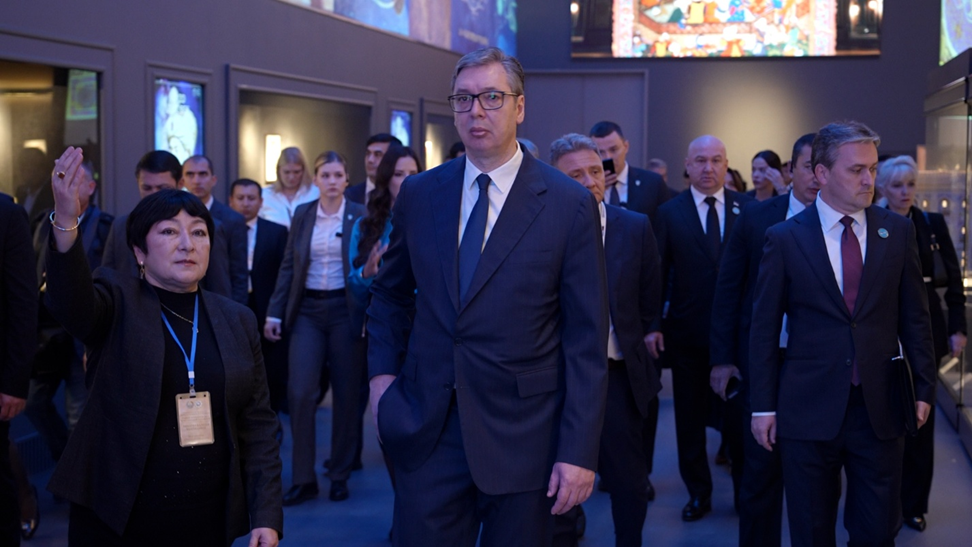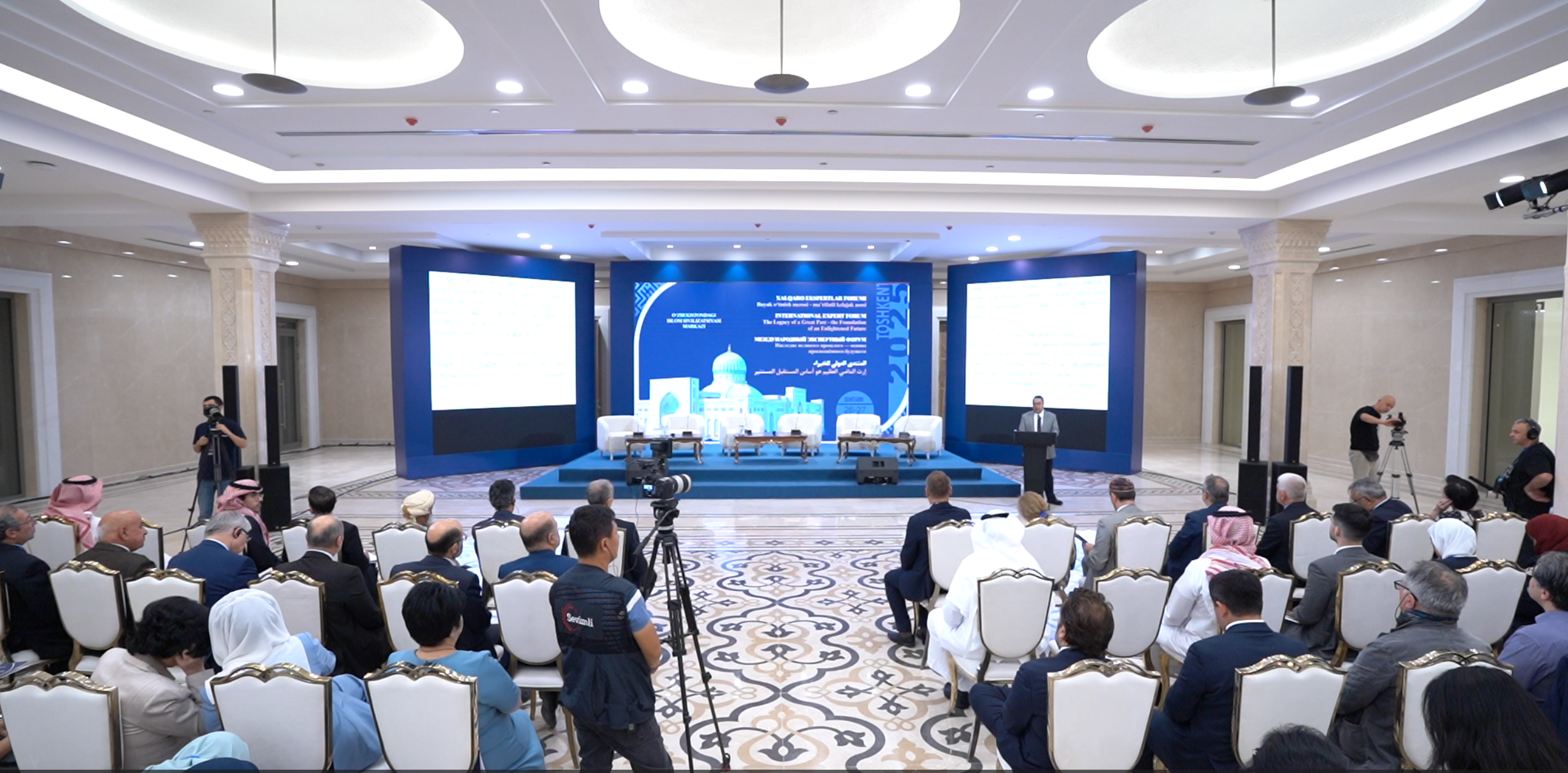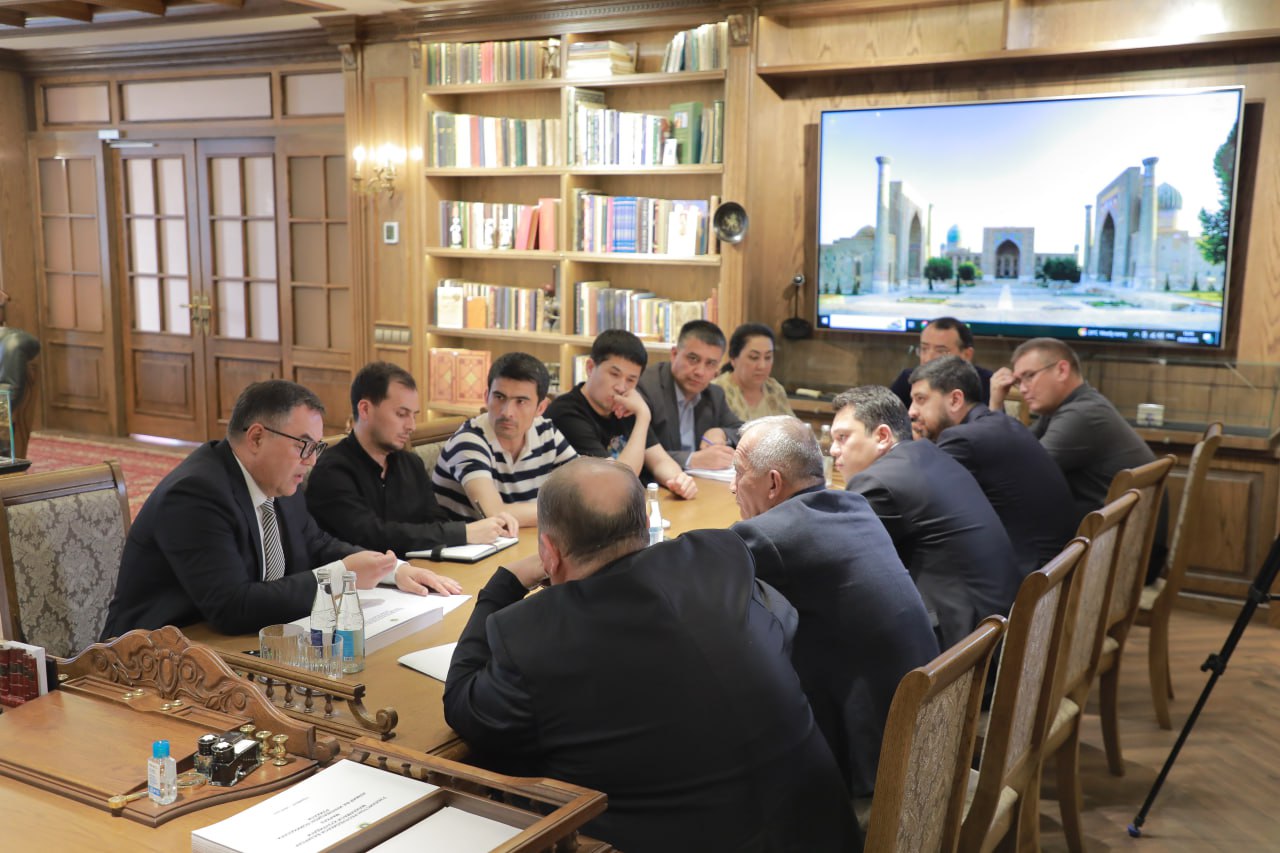Issues of Creating Special Films and Videos for Media Projects Discussed with Filmmakers
A roundtable dedicated to the production of documentary films was held at the Center of Islamic Civilization in Uzbekistan. The event was attended by the Director of the Center, Firdavs Abdukholikov; the Head of the Cinematography Agency, Shukhrat Rizaev; the Director of the Center for the Development of National Cinematography, Furkat Usmonov; representatives from the “Documentary and Chronicle Films” studio; and scholars from the Center.
During the meeting, participants discussed the preparation of documentary films for the Center’s exhibition, enriching them with modern media content, and enhancing their educational and cultural impact. Emphasis was placed on the importance of thoroughly portraying the educational and enlightening roles of historical figures such as Amir Temur and the Timurids, as well as the need to produce a variety of video content that reflects their constructive contributions.
“When creating the Center’s exhibition, we pay special attention to the constructive activities of rulers. For example, in the section dedicated to Sahibkiron Amir Temur and the Timurids, the focus will be on his outstanding achievements in science and education. The exhibition will showcase madrasahs he built, accomplishments in road construction, gardening, and the building of bridges. We will also highlight the contributions of scholars, poets, and thinkers of that era. These aspects must also be considered when filming documentaries. Additionally, it is important to create special content formats about such figures tailored for children. In this regard, the idea of producing animated content about great historical personalities was proposed. Documentary films should also be vivid and highly engaging for viewers. They must convey the spirit of the time. To achieve this, I suggest involving young specialists proficient in information technologies and capable of utilizing artificial intelligence,” said Firdavs Abdukholikov, Director of the Center.
The Head of the Cinematography Agency, Shuhrat Rizaev, emphasized the importance of collaborating with the Center’s scholars to produce scientifically grounded documentaries that align with the themes of the exhibition.
“At the initial stage, we can offer dozens of films from our film archive for use in the exhibition. However, this issue should be approached seriously. A special working group has already been created within the agency, responsible personnel have been appointed, and work is already underway. The history of our country contains many sources worthy of being presented to future generations. Our goal is to collaborate with the scholars assigned to the Center’s projects to prepare high-quality documentary films for the exhibition,” added Shukhrat Rizaev.
In conclusion, an agreement was reached to establish ongoing cooperation between filmmakers and the scholars responsible for different sections of the exhibition, as well as to prepare high-quality documentary films before the Center’s official opening.
Most read

Over 100 experts from more than 20 countries of the world are in Tashkent!

President of Serbia Aleksandar Vučić visited the Islamic Civilization Center in Uzbekistan

The Center for Islamic Civilization – a global platform leading towards enlightenment














